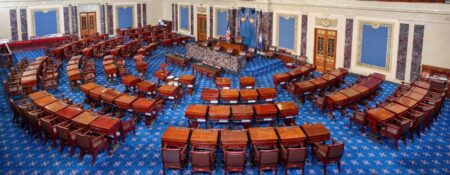The OECD urges Spain to bolster its fiscal buffers by implementing resilience-building measures, safeguarding the economy against future shocks. The organization emphasizes that strong public finances are crucial for driving sustainable growth
Browsing: economic policy
J.P. Morgan envisions India’s Nifty 50 skyrocketing to 30,000 by the close of 2026, powered by anticipated rate cuts and enticing tax incentives. These dynamic forces are highlighted as key catalysts set to drive robust, long-term market growth
The Canadian steel industry is urgently appealing to British Columbia for support amid rising U.S. trade tensions, sounding the alarm that the ongoing trade war threatens jobs and market stability. Immediate government action is crucial to safeguard the industry’s future
Italy’s bold Belt and Road Initiative deal with China marked a daring economic leap, igniting fierce debates over sovereignty and strategic risks. The Atlantic Council explores the far-reaching consequences and Italy’s revamped China policy in its latest analysis
France’s Budget Minister Olivier Lecornu confidently assures that the national budget remains robust and resilient, even as proposed tax reforms encounter obstacles. Amid political challenges, he emphasizes unwavering fiscal stability, Bloomberg reports
A dynamic team of JPMorgan Chase bankers, famously known as the “JPMorgan Boys,” stepped into the spotlight to mastermind the U.S. bailout for Argentina, leveraging their formidable influence to stabilize the nation’s struggling economy during a critical financial crisis
French Premier faces an early challenge as the proposed budget struggles to secure parliamentary support. Key fiscal measures meet fierce resistance amid growing economic concerns, signaling a difficult road ahead for government stability
Italy is reportedly gearing up to support Spain in leading the Eurozone’s finance chiefs, a strategic move aimed at strengthening southern Europe’s voice amid these challenging economic times, Bloomberg reveals
New tariffs on imported pasta are poised to raise prices at Connecticut’s cherished Italian eateries. Restaurant owners warn that these rising costs might soon lead to menu changes at some of the state’s most iconic dining spots
China has escalated tensions with Japan by threatening economic retaliation amid ongoing disputes. This daring move raises serious concerns about trade stability and regional relations, highlighting a dramatic surge in diplomatic strains across East Asia
The U.S. bailout for Argentina, reported by WBUR, reveals a complex web of strategic motives that extend well beyond mere economic aid, highlighting a calculated effort to wield geopolitical influence and uphold regional stability amid rising global tensions
Argentina’s new finance minister, Milei, fearlessly navigates a bold path of daring economic reforms and global diplomacy, aiming to revitalize foreign relations and reshape the nation’s financial destiny
Germany stands at a pivotal crossroads, facing the risk of missing a golden opportunity. Delays in green energy investments and industrial reforms now threaten to stall its economic recovery and undermine its leadership in Europe’s urgent race toward a sustainable future, warns the Financial Times
Canada’s new budget boldly charts a course away from dependence on a single market by expanding trade partnerships and turbocharging domestic industries. This dynamic strategy aims to forge a stronger, more resilient economy ready to thrive amid global uncertainties
Javier Milei has secured a breathtaking victory in Argentina’s elections, gaining a commanding new mandate to push forward his daring economic reforms. This win signals a dramatic shift that could reshape the country’s political and financial landscape
Former President Donald Trump unveiled thrilling plans to slash tariffs on India, announcing that a landmark trade deal is “pretty close” to being finalized. This bold move promises to strengthen the economic ties between the two nations like never before, insiders reveal
Japan’s Prime Minister Takaichi is set to reveal an ambitious new government fiscal target aimed at safeguarding the nation’s financial future. This bold strategy strives to perfectly balance robust economic growth with sustainable debt management, paving the way for lasting prosperity
The Senate has taken a bold step by passing a Democratic resolution aimed at blocking former President Trump’s tariffs on Canadian goods, reflecting rising bipartisan alarm over escalating trade tensions with one of America’s closest allies, CBS News reports
Former President Donald Trump has just unleashed a dramatic new tariff hike on Canadian goods, sparking fresh fire in the escalating trade war. This bold action arises from a fierce clash over a controversial Reagan-era ad, deepening the strain in the already fragile U.S.-Canada relationship
AllianceBernstein’s latest commentary explores China’s daring anti-involution campaign, uncovering how Beijing aims to tame fierce competition and spark sustainable growth by encouraging the economy to “let go of its tail.




















